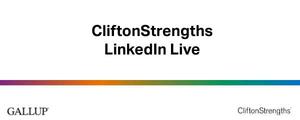Employee work locations have fluctuated significantly in the past five years, with 79% of employees with remote-capable jobs now working from home at least part of the time.
While this new reality has presented advantages for employees and their employers, managers have been forced to contend with new challenges in addition to the many longstanding workplace issues that didn’t change with the advent of hybrid and remote work.
Leaders have issued many different iterations of return-to-work mandates in response to rampant employee disengagement, trying to strike the right balance for their workforce.
While work location is an important consideration, there is a factor that matters substantially more than the number of days in the office: 80% of employees who say they have received meaningful feedback in the past week are fully engaged -- regardless of how many days they worked in the office.
In fact, the boost from meaningful feedback gives four times the lift in engagement than having the “right number” of days in the office. The problem is, Gallup found in a recent study that among nearly 15,000 employees, only 16% said the last conversation with their manager was extremely meaningful.
What counts as meaningful?
Gallup researchers studied the most common characteristics of extremely meaningful and less meaningful conversations. These are the top five characteristics of meaningful conversations, in order of importance:
- Recognition or appreciation for recent work. Gallup and Workhuman found that only 10% of employees are asked how they like to be recognized and appreciated. And only 23% of employees strongly agree that they get the right amount of recognition for the work they do. Those who do are four times more likely to be engaged.
- Collaboration and relationships. In the hybrid workplace, collaboration and relationships are at risk. Gallup found that the correlations between coworker relationships and intention to stay as well as likelihood to recommend the company were stronger in 2022 than before the pandemic. Managers play a key role in connecting the right team partners.
- Current goals and priorities at work. Clarity of work expectations has been slipping, especially for younger workers. More remote work means weekly check-ins are essential as customer and business needs change.
- The length of the conversation. Between 15 and 30 minutes is enough time for a meaningful conversation, but only if it happens frequently. In fact, 15- to 30-minute conversations have a greater impact than 30- to 60-minute conversations if they occur regularly. But if managers don’t give employees feedback every week, they will need longer conversations to catch up.
- Employee strengths or the things they do well. Managers can have much more meaningful discussions about how each person gets their work done if those conversations are based on what they do best. The goal of Gallup’s CliftonStrengths assessment is to create more effective conversations that maximize the potential of every team member.
The takeaway is that feedback is meaningful to employees when their manager focuses on recognition, collaboration, goals and priorities, and strengths. And if these conversations happen every week, they can be brief. Naturally, problems and challenges will arise -- and managers and employees should discuss them -- but to improve engagement, managers need to have conversations that inspire each individual.
The one conversation topic employees perceive as less meaningful is discussing their weaknesses or what they don’t do well. This might be because, in many conversations, employee weaknesses are all that managers discuss. Without the high-priority focus areas above, it’s extremely hard for managers to build trust and inspiration.
How to Make Meaningful Conversations a Weekly Habit
So how do you get your managers to have the meaningful conversations that are so essential to employee engagement, especially in a post-pandemic, hybrid environment? Managers already have a lot on their plates without being asked to take on another task.
Most managers’ jobs are nearly impossible because they have so many new and different initiatives coming at them from senior leadership. Instead of presenting meaningful conversations as just another expectation for stressed-out supervisors, invest in their development by upskilling them to coach with their strengths.
Gallup has experimented with many manager interventions over the years. Here are some methods that we know work:
- Implement strengths-based management. Strengths-based managing simplifies and streamlines the manager’s role. When managers act as coaches for their teams, they get progressively better at three things: clarifying the goals of each person on the team, having ongoing conversations and building accountability.
- Teach simple, science-based insights. Managers need a straightforward way to understand what works -- what leads to big gains -- especially in customer outcomes. They need robust insights about human nature that they can count on.
- Create learning modules that build on the fundamentals. In these additional modules, you can expand and elaborate on strengths, engagement and performance development -- for example, diversity, equity and inclusion insights or wellbeing insights. Or you can offer hands-on experiences where managers practice check-ins with employees.
- Encourage coaching conversations with strengths experts. Many managers benefit greatly from getting feedback from experienced Gallup-Certified Strengths Coaches on their strengths and strategies for maximizing their team members' strengths.
- Support peer learning. Managers can get valuable insights and see what ownership looks like when other managers describe their challenges, ideas and successes.
How Does Gallup Know This Works?
Following the onset of the COVID-19 pandemic, Gallup conducted 17 studies on the effectiveness of the type of upskilling described above. In each study, we had a test group of managers who went through strengths-based manager upskilling and control groups of managers who didn’t. The studies included 14,774 participants and 2,354 teams.
Gallup measured managers’ engagement, their teams’ engagement, their teams’ turnover rates and their productivity a year before they received the training -- and then again nine to 18 months after they had completed the upskilling program.
We found that managers in the upskilled group had 10% to 22% higher engagement themselves, 8% to 18% higher team engagement, 21% to 28% lower turnover and 20% to 28% higher likelihood of performance improvement relative to their peers. Plus, these effects compound in future years.
Once your managers get into the habit of having meaningful conversations with employees every week, you’ll see higher engagement, improved performance and lower turnover. And empowering managers to coach will become an expectation in your organization’s culture.
The preceding was adapted from Culture Shock, Gallup’s book about the biggest leadership challenge of our time. For more insights, order your copy of Culture Shock today.
Implement an employee engagement strategy that boosts business outcomes.
- Learn how Gallup’s Manager Program equips managers to coach employees who grow, thrive and win.
- Discover the key drivers of employee engagement in your organization.
- Explore the most urgent employee engagement trends facing companies today.




